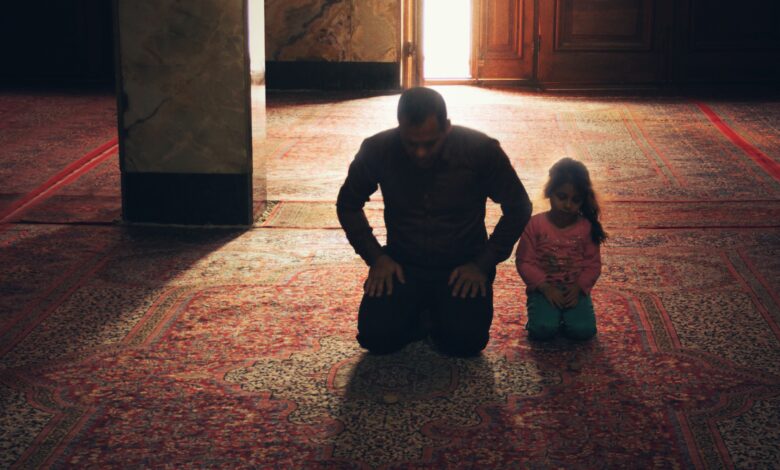Daily Prayer Schedule for January 2024 in Abu Dhabi: Fajar, Zhuhar, Asar, Maghrib, and Isha

Significance of Prayer in Islam
Prayer holds great significance in Islam as one of the five pillars that form the foundation of the faith. For Muslims, observing the five daily prayers known as salah is not just an obligation but also a way to connect spiritually with Allah. Through salah, Muslims submit themselves to the will of Allah and find inner peace and contentment.
The five daily prayers in Islam, namely Fajar, Zhuhr, Asar, Maghrib and Isha, structure a Muslim’s day around remembering Allah. By taking timeouts five times a day to reconnect with the divine, Muslims live a life of purpose and meaning. The prayers serve as reminders to be grateful, patient, kind and just throughout the day.
Hence, prayer or salah is a crucial part of everyday life for observant Muslims. Knowing the accurate prayer times and observing salah regularly is essential to fulfilling one’s duties as a Muslim.
Importance of Knowing Prayer Timings
In Islam, salah must be offered within prescribed times. Hence, it is vital for Muslims to know the accurate prayer timings in their city or town. Being aware of the exact prayer schedule allows Muslims to structure their day productively while observing salah at the right times.
With accurate timings, Muslims can plan their work, meetings and other engagements without missing prayers. For instance, knowing the Dhuhr and Asr namaz times in advance allows a Muslim professional to schedule important work calls and meetings outside of those durations.
Additionally, awareness of salah timings unites the Muslim community in a city or country. When all Muslims in a locality pray together at the same precise times, it strengthens the Islamic brotherhood and solidarity.
Therefore, resources providing reliable and up-to-date salah timings are extremely beneficial for Muslims striving to offer timely prayers every day.
Daily Prayer Schedule for January 2024 in Abu Dhabi
Fajar Prayer Time
The Fajar daily prayer time in Abu Dhabi during January 2024 starts at 5:44 AM at the beginning of the month. Over the month, it ranges between 5:44 AM to 5:46 AM before sunrise.
To catch the Fajar prayer in congregation at the mosque, worshippers generally need to be present 10-15 minutes before the azan. So Muslims should reach the masjid by about 5:30 AM.
It is believed that the pre-dawn Fajar namaz confers abundant blessings and reward since it requires considerable effort to wake up so early. By offering Fajar salah on time, Muslims start their day with the remembrance of Allah.
Zhuhr Prayer Time
The midday Zhuhr prayer time in Abu Dhabi gradually becomes later in January 2024. At the start of the month, Zhuhr azan is at 12:28 PM. By the end of the month, Zhuhr namaz can be offered between 12:38 PM to 12:53 PM.
Since Zhuhr prayer falls during work or school hours, it can be challenging to take a break to offer salah. However, resources like this prayer schedule help Muslims plan their days better to ensure they can pray Zhuhr on time.
Asar Prayer Time
During January, the Asar prayer schedule for Abu Dhabi is from 3:26 PM to 3:45 PM. Over the month, the Asar timings range between 3:26 PM and 3:36 PM till sunset.
Asar salah is often considered the ‘middle’ prayer. By taking a pause from worldly affairs to worship in the late afternoon, Muslims can de-stress and refocus on Allah before continuing their day.
Maghrib Prayer Time
January 2024 opens with Maghrib namaz being offered in Abu Dhabi from 5:48 PM onwards. As the month goes by, Maghrib timings become gradually later, ending at 6:10 PM.
Maghrib prayer at sunset holds special significance since it was the first salah made obligatory in Islam. When performed in congregation, it unites the Muslim community after a busy day.
Isha Prayer Time
During January, the Isha salah schedule for Abu Dhabi begins from 7:07 PM and ends at 7:25 PM. Isha namaz timings become slightly later towards the end of the month.
As the last of the five obligatory prayers, Isha holds special spiritual meaning. By praying Isha before sleeping, Muslims entrust their nights and future days to the protection of Allah.
Conclusion
Being aware of the accurate prayer timings and schedules enables Muslims to build their days around salah while managing work and personal commitments. Resources like this article allow Muslims to stay updated so they can offer timely prayers. Muslims in Abu Dhabi are advised to bookmark this namaz schedule for January 2024. By structuring daily activities around Fajar, Zhuhr, Asar, Maghrib and Isha timings, Muslims can boost productivity while upholding salah at the core.
Reminder of the Spiritual and Personal Benefits of Observing Daily Prayers
Beyond being a religious obligation, performing salah five times a day brings immense spiritual and personal growth. Through regular prayers, Muslims strengthen their relationship with Allah and find tranquility and contentment.



